December 1, 2024, 10:48 am | Read time: 5 minutes
TRAVELBOOK author Anna Wengel traveled to Cambodia without any expectation—and fell head over heels in love with the country. Here she gives six reasons why Cambodia is also worth a trip away from the top attraction, Angkor Wat.
1. Cambodia Is on the Move
This is how I had imagined it: I hire a scooter and slide over unpaved roads, stone by stone. Almost at walking pace, so as not to crash-land with my vehicle. Instead, I ride at top scooter speed over asphalted highways, compared to which Berlin’s roads are like a pothole landscape of the last resort. Modernity has arrived on Cambodia’s main roads. But almost only there. There are still gravel roads, meat monsters hanging from roadside stalls who have never heard of hygiene standards, and gracefully balanced women carrying their goods on their heads. Pol Pot and his ilk have set Cambodia back in its quest for modernization, that is clear to see. But Cambodia is on the move. Almost constantly available Wi-Fi and swanky roads are just two signs. If you want to see it as it was in the past, you should visit Cambodia now rather than tomorrow.
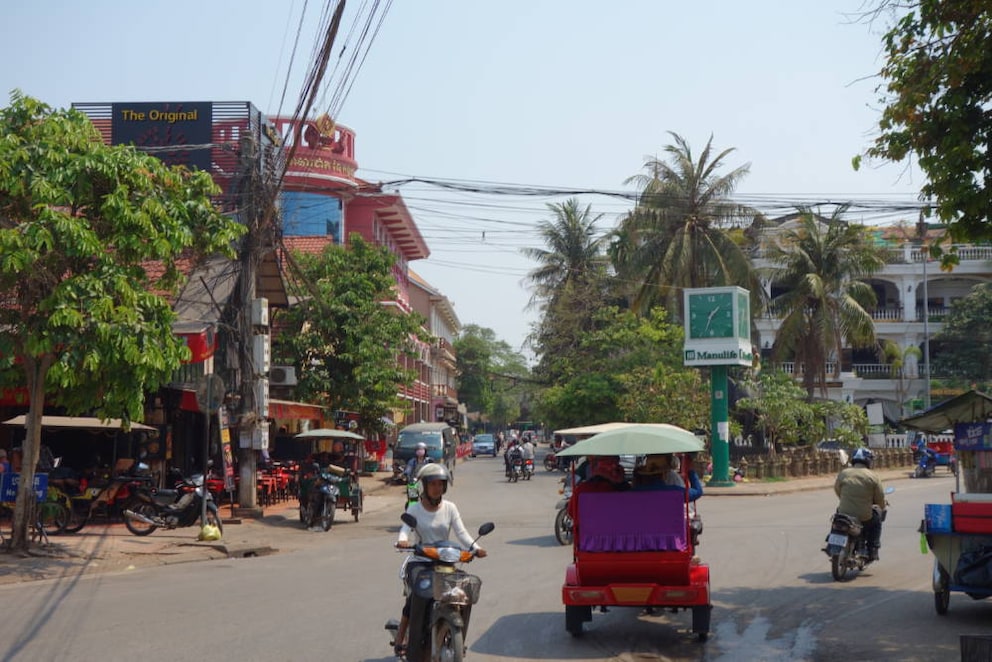
2. You Can Swim in Iridescent Plankton Here
Cambodia can do kitsch. Cambodia glitters. Not just the various festive lights that illuminate the beach here and there in the south at night. The sea also glitters when you splash around in it at night. The less romantic explanation for this: plankton. Even mini hand or leg movements make it sparkle, making the kitsch scenario of a starry sky and crescent moon perfect.
3. Creepy Food
“Watch out, crocodiles!”, I am warned before I set foot death-defyingly on a small mini-ship. And indeed. There are around 20 small alligators lying on a wooden plank beneath me. I’m a little happy about this surprising near-wildlife find—then I’m presented with a menu: It says crocodile on a spit. And that’s not the only scary dish on the menu.
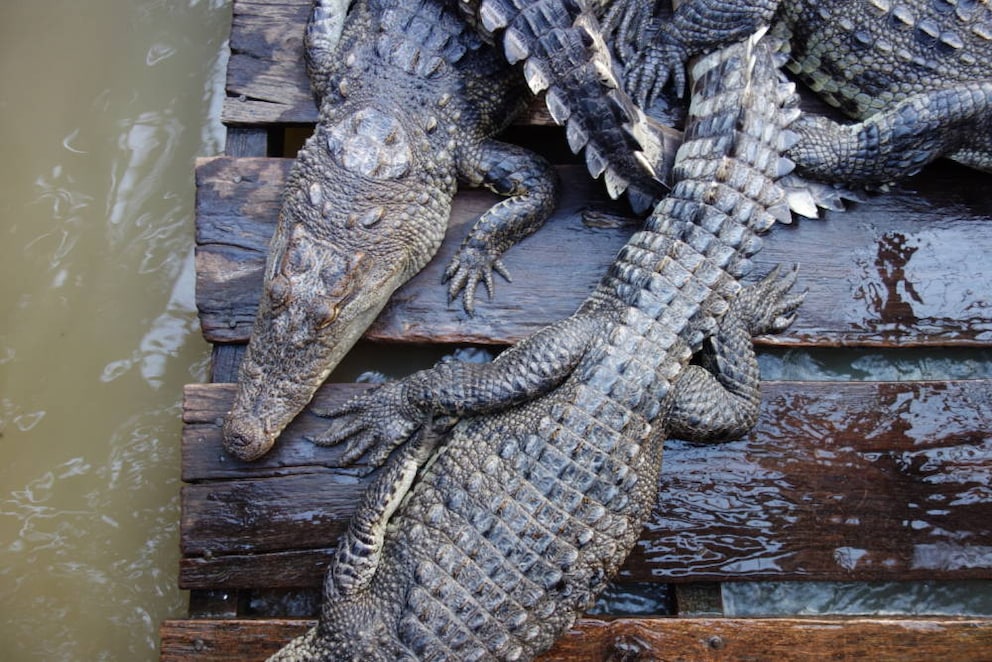
Snake, scorpion, and other specialties that seem like absurdities to us are held under the noses of tasty tourists in Cambodia on skewers. I find the contents of the soup pots on the roadside a little less scary. Here, you tend to dine with locals rather than tourists. Reason enough for me to try the indefinable soup. What exactly is in it? I have no idea. To be honest, I didn’t want to know. If crocodile is on the menu, who knows what’s flying into the pot at the roadside.
For vegans and vegetarians, the selection at the markets might also be scary—one of my absolute highlights, by the way. Here you can find everything meaty and fishy on skewers, as well as various types of ice cream with coconut, taro, or durian flavors.
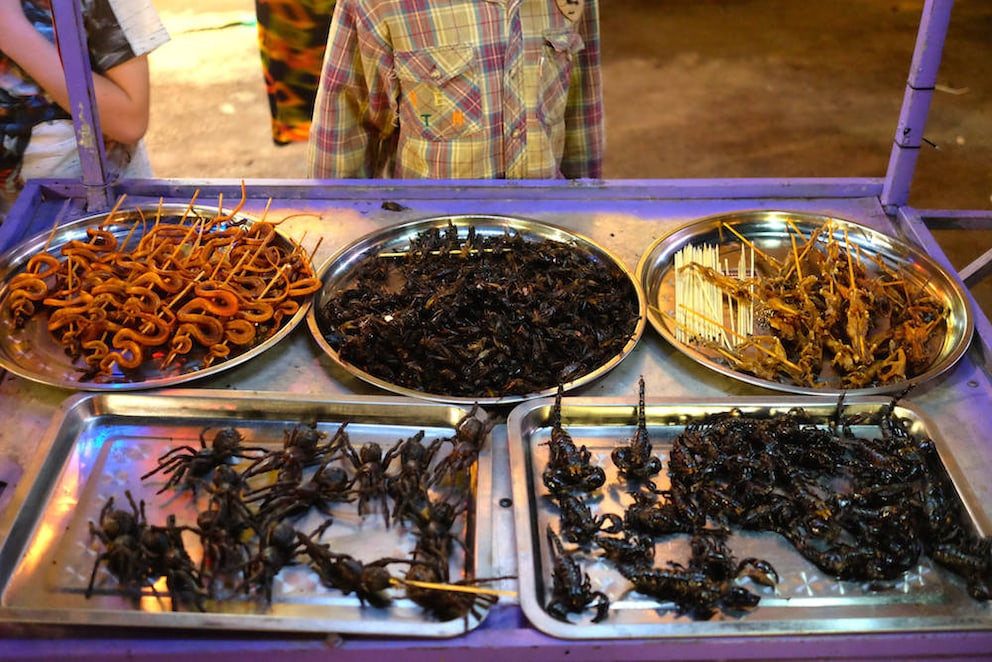
4. The S21 Prison and the Killing Fields
Blood residue on the floor of mini cells. Photos of recently deceased people on display walls. Drawings of the most brutal torture methods next to real torture devices. Prison S-21, now the Tuol Sleng Genocide Museum, in Phnom Penh is one of the most visited sights.
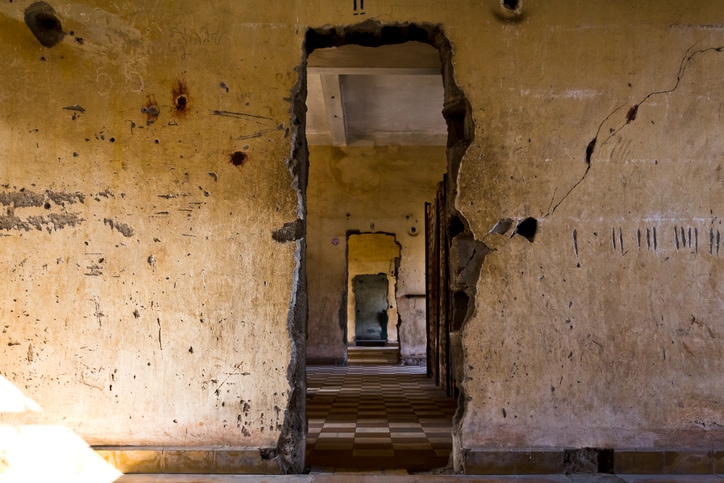
The so-called Killing Fields, where the Khmer Rouge murdered tens of thousands of people in the mid to late 1970s, are also very popular. Today, the sites are a gruesome memorial to the darkest chapter in Cambodian history. Both at S-21 and at the Killing Fields, tourists are shaken by brutal reality—at the latest, when the audio guide tells how babies were beaten with their heads against the tree. It’s brutal, it’s disgusting, and it’s important to know what happened in Cambodia. The story of the Khmer Rouge (1975 to 1979), who under Pol Pot brought the entire country under their brutal sway, killed millions, and after their theoretical end, got away almost blithely and in some cases with impunity, is unfathomable. In S-21 and on the Killing Fields, you are confronted with this relatively unsparingly.
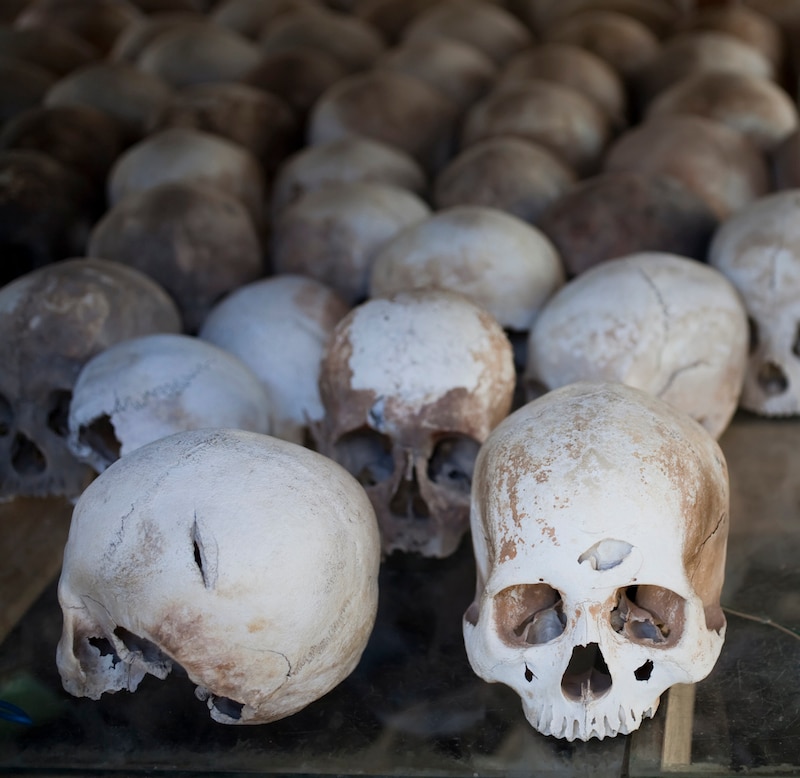
5. Khmer Massage
Half an hour later, I can still feel that fist. It pressed through my stomach into my back, almost to the mat underneath. Organs? They hid in shock. My thigh muscles were still grumbling the next day, as they didn’t find it funny to be turned 180 degrees while the rest of my body disappeared under the masseuse, who pressed it into place like a straitjacket. Doesn’t sound inviting? A Khmer massage—almost comparable to the Thai version—is definitely not a feel-good massage. But if you like it when your muscles are soft as butter because they have been kneaded so thoroughly, you will never stop having this massage technique done to you. The pain is worth it.
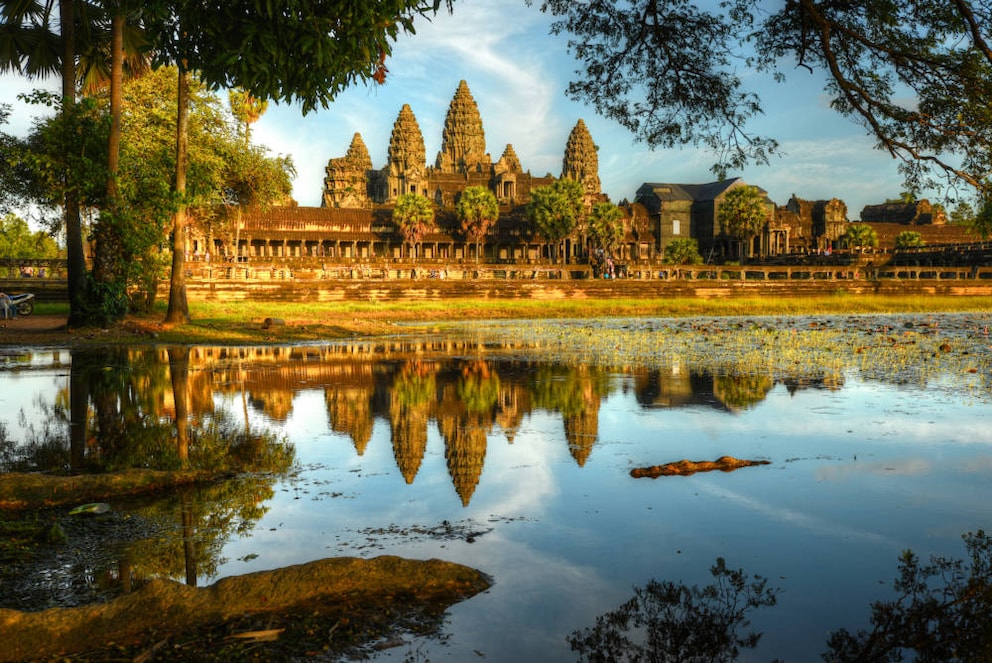

The Dreadful Story of This Tree in Cambodia

My Spectacular Visit to the World’s Oldest Rainforest

Why Nepal is Both, a Nightmare and a Dream
6. No Stress in Cambodia
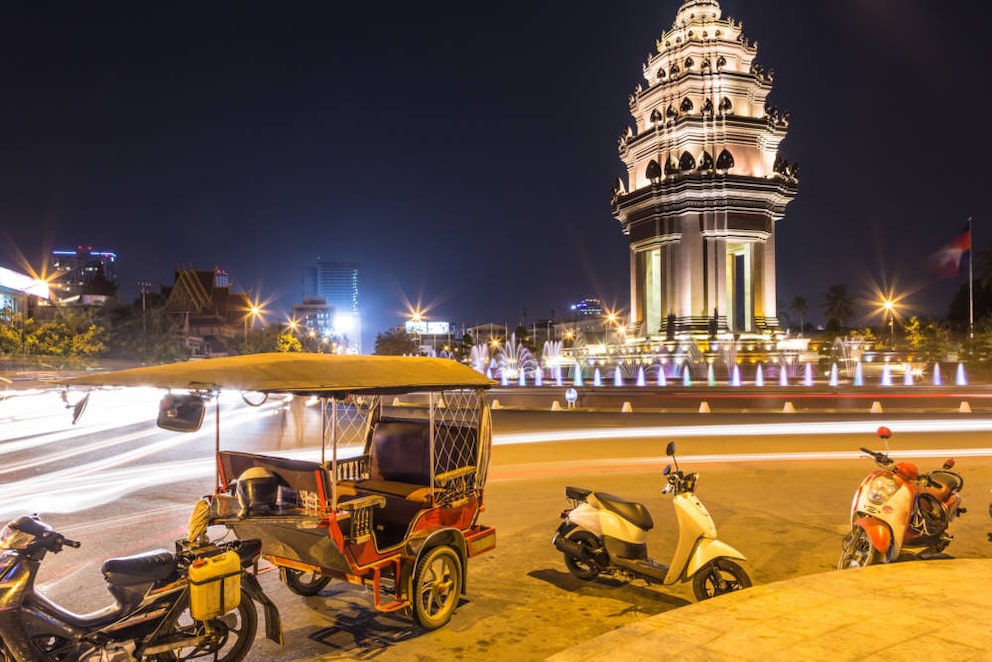
Honking is a sound that has stuck in my ear after almost every trip to Asia. People honk to overtake, to say hello, or simply for the sheer joy of it. Not so in Cambodia. Honking is too stressful. And nobody can want that. This is where the small country clearly differs from its neighbors and neighbors’ neighbors: there is hardly any Asian hustle and bustle, but many relaxed people who take a lot of time for everyday things with a smile. What you can’t do today, you can do tomorrow, a young boy in Phnom Penh sums it up for me—and that describes the Cambodian attitude to life exactly.
The original of this article was published in 2018.

